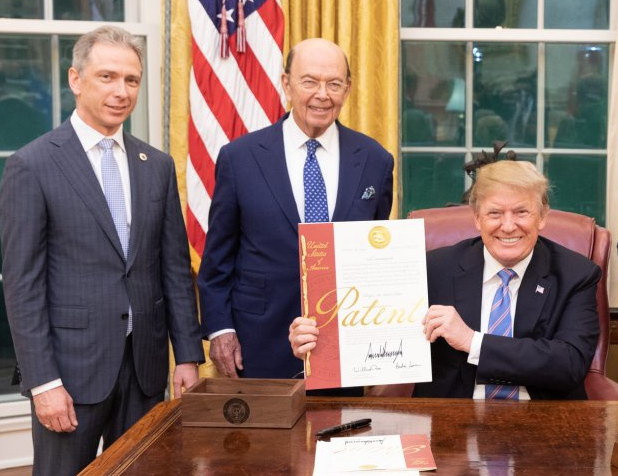

"It's all about legal bills and patent income (the performance of the Office is measured using a misleading, misguided yardstick)."Who cares about courts and judges anyway? It's all about legal bills and patent income (the performance of the Office is measured using a misleading, misguided yardstick).
Law360's coverage by Jimmy Hoover now says that the "USPTO [is] Testing AI Software To Help Examiners ID Prior Art" as if prior art is the main issue. As we recently explained on a couple of occasions, it is not. Focus on quality instead. Better yet, the USPTO should teach examiners to better apply Section 101 and reject all software patents before courts do so (at huge expense to defendants wrongly accused). From the report: "The U.S. Patent and Trademark Office is testing new software that gives patent examiners additional tools to identify whether a patent application incorporates existing technology, USPTO Director Andrei Iancu said Thursday..."
Still addresses the wrong issue, doesn't he?
"Does the USPTO care about justice? Does it pay attention to the courts? No, not really..."Abstract or not (or original or not), patents can also be squashed for just being darn obvious (ۤ 103). "Woss argued that the asserted claims were invalid under 35 U.S.C. ۤ 103 grounds for obviousness," Watchtroll noted in relation to TRX Fitness Equipment. In a separate article, one regarding ۤ 103 as well, Watchtroll also complains that the notorious patent associated with Restasis is a "victim" because it's a fake patent "under 35 U.S.C. ۤ 103 grounds for obviousness." Up in flame (see picture), says Watchtroll, even though many people's lives may be saved due or owing to the Federal Circuit's judgment.
Does the USPTO care about justice? Does it pay attention to the courts? No, not really...
How about public interests? Some patents literally kill.
Iancu has truly become an ‘American Battistelli’; the chief judge of the Patent Trial and Appeal Board (PTAB) is no longer the chief judge. Reminiscent of anything?
"If patent offices diverge further and further away from caselaw, then they risk breaking the patent system as a whole. Patents granted by offices would be presumed invalid as if it's just a filing mechanism."As someone anonymous has just put it in relation to the European Patent Office (EPO), "If you were Patrick Corcoran and the ILOAT would have not yet rendered its judgement, would you “consider reaching an amicable settlement with the Office”?" (to use the insulting proposal of António Campinos).
If patent offices diverge further and further away from caselaw, then they risk breaking the patent system as a whole. Patents granted by offices would be presumed invalid as if it's just a filing mechanism. ⬆